New Scientist covers the latest developments in science and technology that will impact your world. New Scientist employs and commissions the best writers in their fields from all over the world. Our editorial team provide cutting-edge news, award-winning features and reports, written in concise and clear language that puts discoveries and advances in the context of everyday life today and in the future.
Elsewhere on New Scientist
A note from the editor
Biology’s cup runneth over • AI can now reliably predict crucial information on vast numbers of proteins
New Scientist
Monkeypox claims lives • The monkeypox outbreak’s death toll is rising, but knowledge of symptoms is improving, reports Jason Arunn Murugesu
Huge protein breakthrough • AlphaFold, an AI created by UK firm DeepMind, has predicted the structure of nearly all known proteins – a monumental feat, reports Matthew Sparkes
Analysis Biochemistry • Why AlphaFold is transformational Understanding the complex structures of proteins is key to developing drugs and knowing how living things work, says Michael Le Page
The race for the furthest galaxy • The James Webb Space Telescope keeps breaking its own record for the most distant galaxy ever found, reports Leah Crane
New telescope could tell us what exoplanet surfaces are made of
JWST spots a weird galaxy with almost no heavy elements
How pobblebonk frogs handle acidic pools
Forensic fingerprinting technique could help spot document fraud
Symptoms of chronic fatigue syndrome may be caused by mini blood clots
Voice jammer stops anyone from recording you speak
Could vaccines end the pandemic? • Nasal vaccines may stem transmission, while universal ones could target proteins in every SARS-CoV-2 variant and even other coronaviruses, reports Michael Le Page
Fraudsters in the US could use loophole to get material for a ‘dirty bomb’
Moths are doing more pollinating than we thought
Field notes Rushton Woods Preserve, Pennsylvania • Tiny trackers reveal bird migration routes in amazing detail “Nanotags” being fitted on birds at a nature preserve outside Philadelphia are revolutionising tracking, finds Corryn Wetzel
Dental X-rays likely to be used to assess the ages of asylum seekers in the UK
Computer cables become antenna to steal data
Covid-19 taste issue affects more women
Robot hand contains artificial muscles
Highest safe dives for most people calculated
Really brief
Advertising crisis • We urgently need a public information campaign about the climate emergency, to both educate and trigger action, says Bill McGuire
Field notes from space-time • Emerging from the background General relativity is known as a background independent theory. Chanda Prescod-Weinstein sets out to explain what this means
Fathoms deep
Your letters
Rewilding the world • The challenge of returning lost species to ecosystems in countries affected by conflict adds complexity to this rewilding story, says Jack Ashby
It’s only a movie… • Why do we love scary films? How do their makers get under our skin? Elle Hunt explores a book that dares to ask
Don’t miss
The film column • The hardest journey An intriguing documentary about the life and adventures of Ranulph Fiennes, one of the last hero-explorers of our time, packs an altogether different punch at the end, discovers Simon Ings
Cracking the code • Much of the world’s first writing, carved into clay tablets, is undeciphered. Now, AI is helping us piece together this strange script, revealing incredible stories of civilisations at the dawn of history, finds Alison George
Reading the signs
Blasts from the past • Ludovic...

 Apr 20 2024
Apr 20 2024
 Apr 13 2024
Apr 13 2024
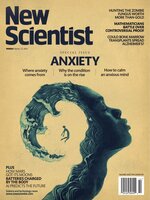 Apr 06 2024
Apr 06 2024
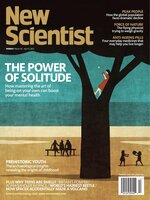 Mar 30 2024
Mar 30 2024
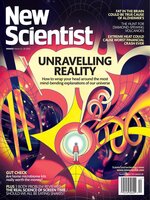 Mar 23 2024
Mar 23 2024
 Mar 16 2024
Mar 16 2024
 Mar 09 2024
Mar 09 2024
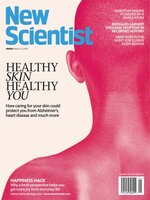 Mar 02 2024
Mar 02 2024
 Feb 24 2024
Feb 24 2024
 Feb 17 2024
Feb 17 2024
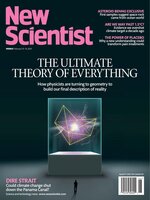 10 Feburary 2024
10 Feburary 2024
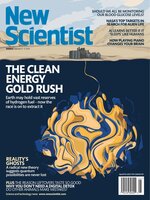 Feb 03 2024
Feb 03 2024
 Jan 27 2024
Jan 27 2024
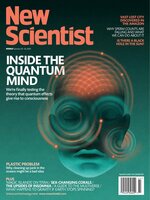 Jan 20 2024
Jan 20 2024
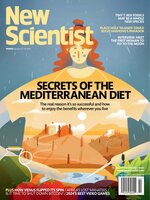 Jan 13 2024
Jan 13 2024
 Jan 06 2024
Jan 06 2024
 Dec 30 2023
Dec 30 2023
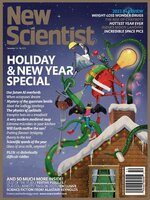 Dec 16 2023
Dec 16 2023
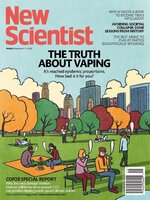 Dec 09 2023
Dec 09 2023
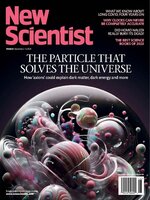 Dec 02 2023
Dec 02 2023
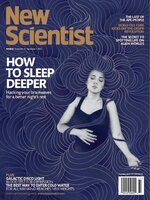 Nov 25 2023
Nov 25 2023
 Nov 18 2023
Nov 18 2023
 Nov 11 2023
Nov 11 2023
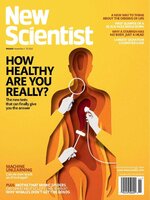 Nov 04 2023
Nov 04 2023
